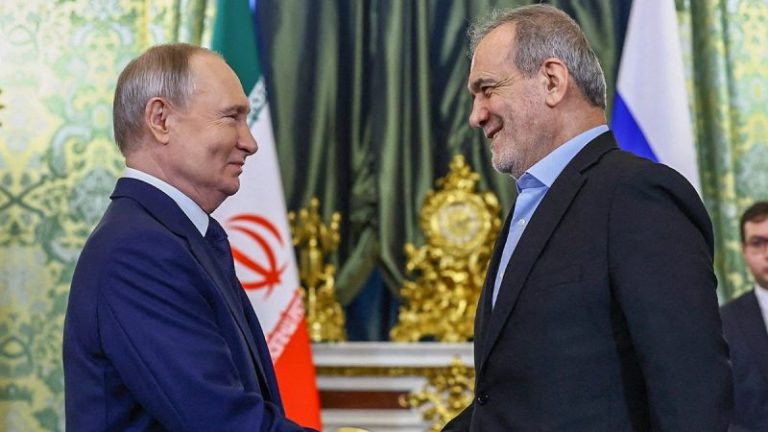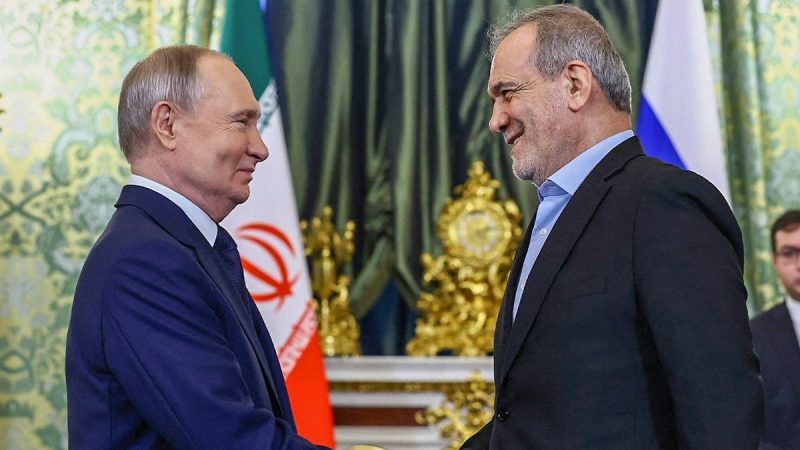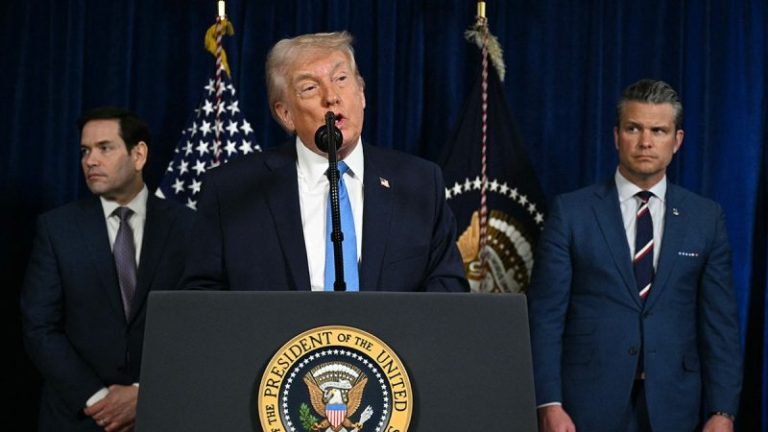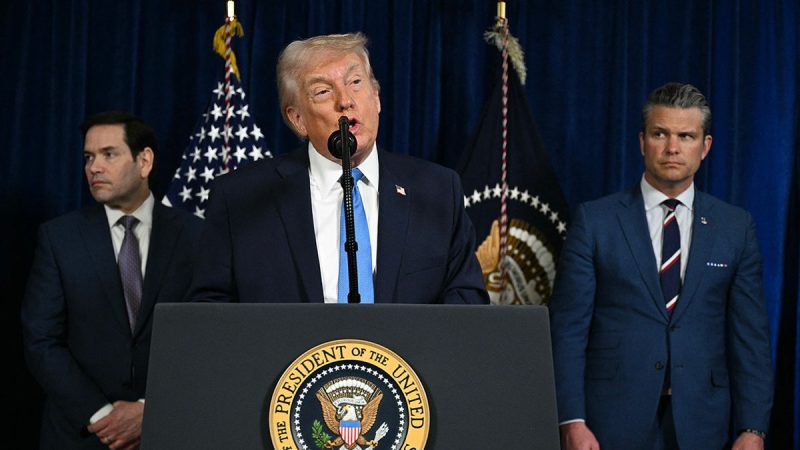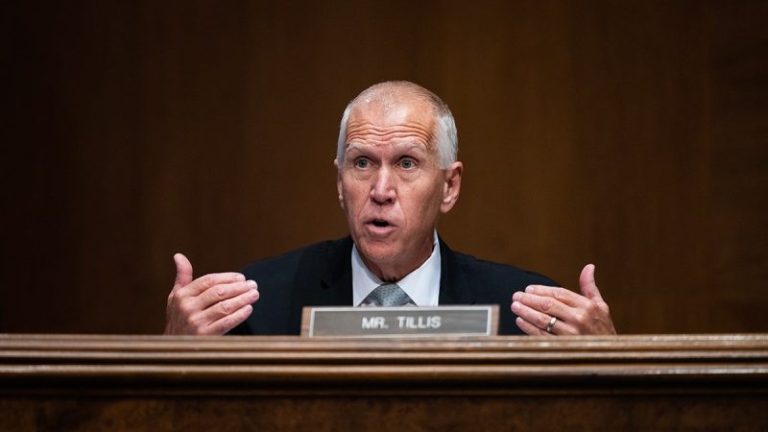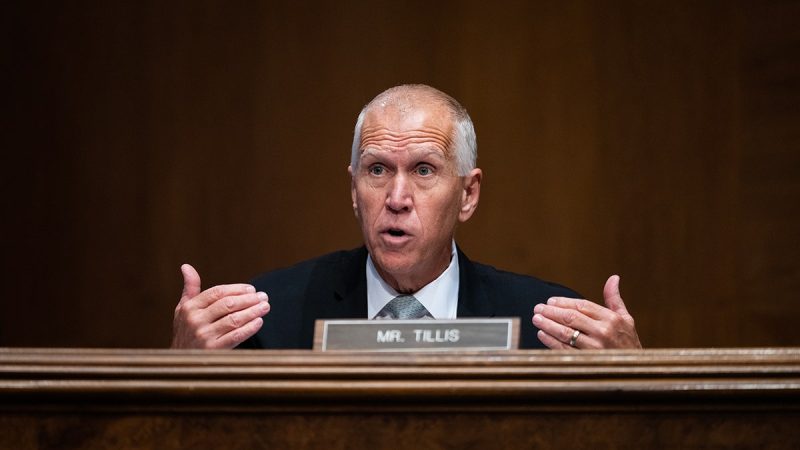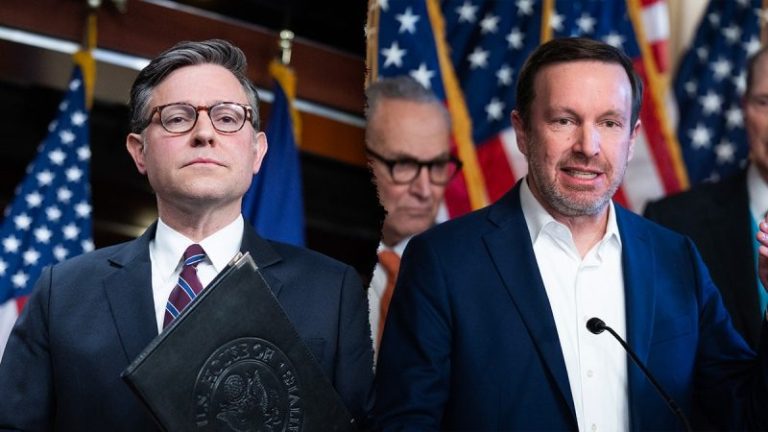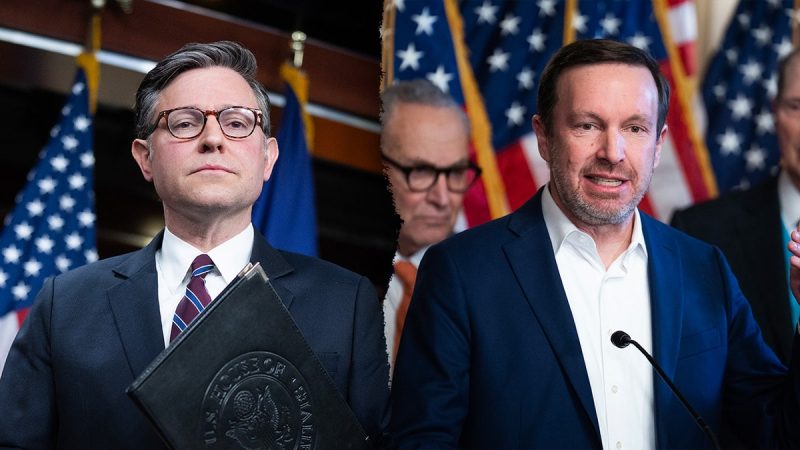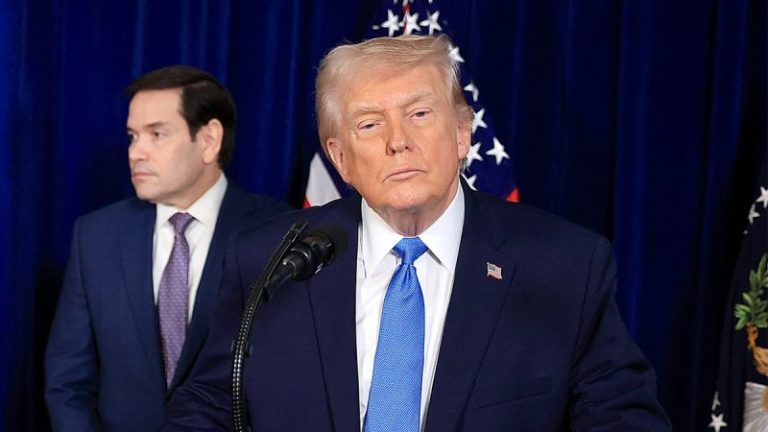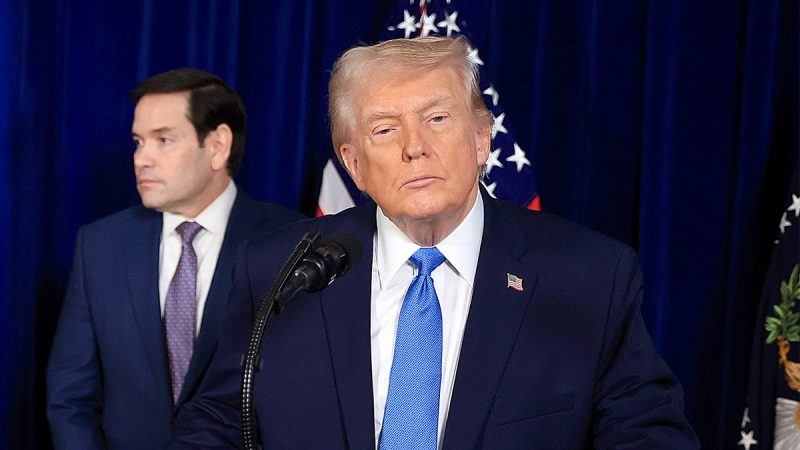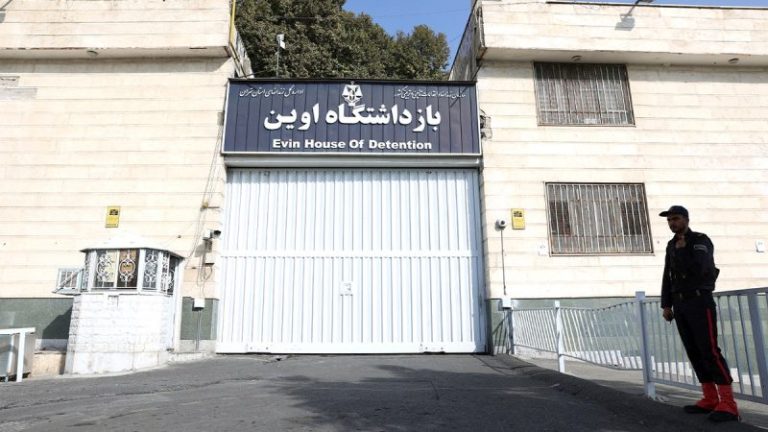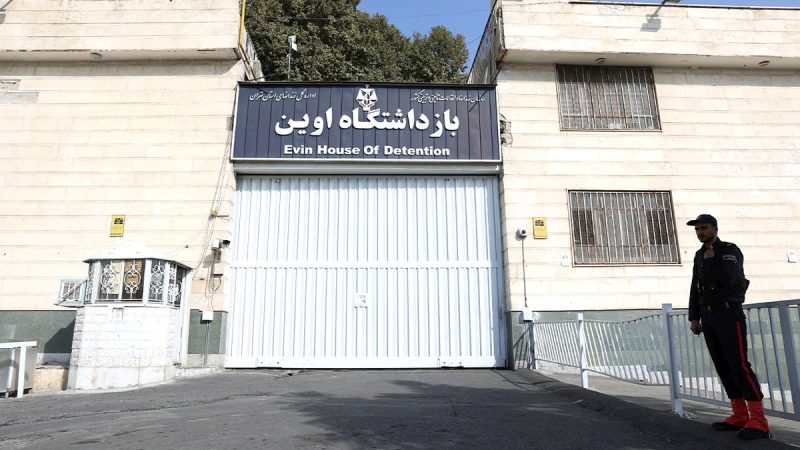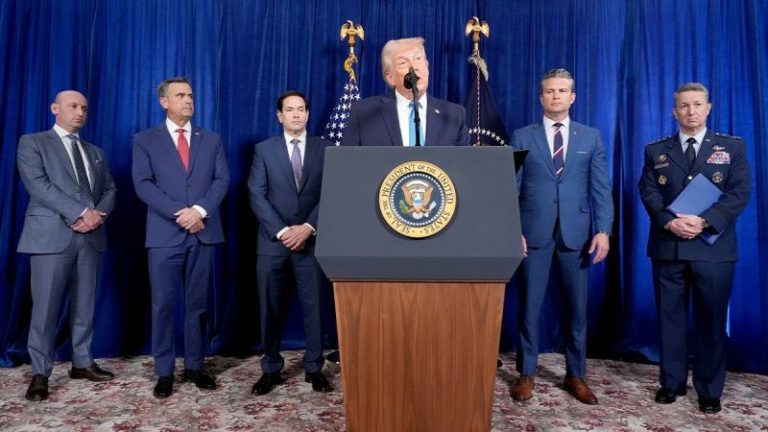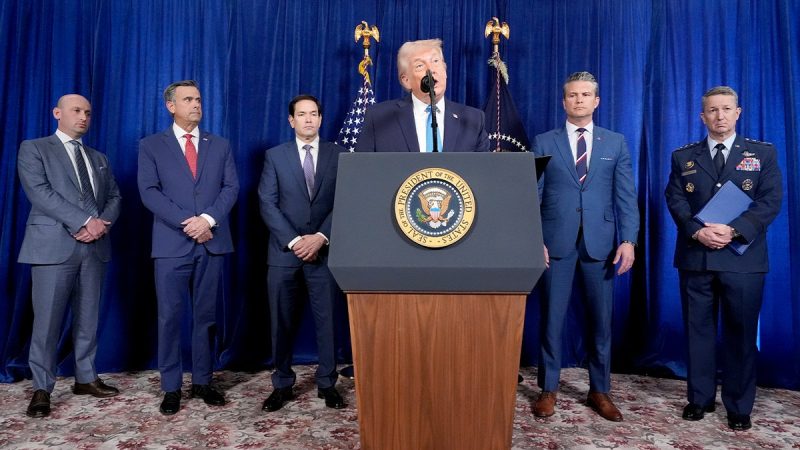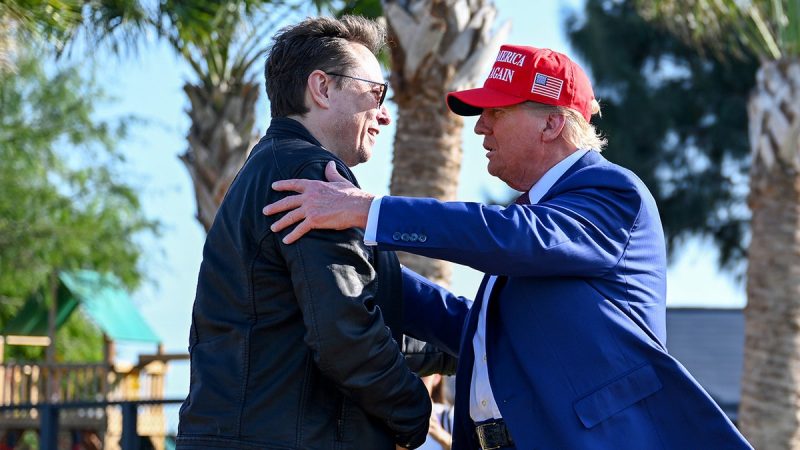
Tech billionaire Elon Musk is increasingly drifting back into President Donald Trump’s MAGA orbit after their public blowup in June 2025 led to months of icy distance between the pair.
That thaw surfaced publicly again over the weekend. Trump mentioned Musk by name Sunday when asked by the media whether he would lean on Starlink, Musk’s satellite internet constellation, to help deliver internet access to Iran as citizens take to the streets in mass protests against Ayatollah Ali Khamenei’s regime.
‘We may get the internet going if that’s possible,’ Trump told the media Sunday while aboard Air Force One. ‘We may speak to Elon. Because, as you know, he’s very good at that kind of thing. He’s got a very good company. So we may speak to Elon Musk.’
The president added, ‘I’m gonna call him as soon as I’m finished with you.’
SpaceX did not immediately respond to Fox Digital’s request for comment on the president’s remarks.
Trump’s comment is the latest signal that the Trump–Musk friendship is warming after months of the pair spatting or having cordial interactions — a stark contrast to their cozy relationship while on the 2024 campaign trail and the early days of the administration.
When asked Monday for updates on the president’s friendship with Musk, and if Trump’s comments were more reflective of the urgency in Iran, the White House directed Fox Digital to Trump praising Musk Jan. 4.
‘Elon’s great. I say about Elon, he’s 80% super genius, and 20% he makes mistakes. But he’s a good guy. He’s a well-meaning person,’ Trump said of Musk while aboard Air Force One Jan 4.
Trump’s comments follow the pair sharing a ‘lovely dinner’ together at Mar-a-Lago in Florida, Musk reported on X at the time.
Just roughly a year ago, Musk was described as Trump’s ‘first buddy,’ as the media took note of the pair’s close working relationship, which included Musk serving as a special employee of the federal government as Trump unleashed the Department of Government Efficiency (DOGE). Special government employees are commonly experts that the federal government hires on a temporary basis for no more than 130 days a year.
Musk would sleep at the White House on late work nights, attend Cabinet meetings and become a common face on the White House campus when he served as the public leader of DOGE — the government office Trump established in January 2025 to seek out and end potential fraud, waste and mismanagement within the federal government.
‘He’s one of the greatest business leaders and innovators the world has ever produced,’ Trump said in May, when Musk’s tenure as a special government employee ran dry of its 130 days. ‘He stepped forward to put his very great talents into the service of our nation, and we appreciate it.’
Days later, Musk began publicly criticizing the ‘big, beautiful bill’ — a massive tax and spending package that advanced Trump’s agenda on taxes, immigration, energy, defense and the national debt — as a ‘disgusting abomination.’
Musk warned on X it would be the ‘BIGGEST DEBT ceiling increase in HISTORY’ — then escalated the spat with a personal jab that ‘@RealDonaldTrump is in the Epstein files.’
Trump told the media that he was disappointed in Musk’s comments, while the tech billionaire reeled in some of his commentary, remarking he sometimes ‘went too far.’ The president said in 2025 that his relationship with Musk changed when he began discussing plans to eliminate the electric vehicle mandate, which would affect Musk’s signature electric company, Tesla.
The pair abruptly parted ways in June. Musk has sporadically signaled support for the Trump administration, including just weeks later in July when he praised Trump’s actions in Israel to end the war with Gaza.
Trump signed the ‘big, beautiful bill’ into law on the Fourth of July.
Their relationship has been on an apparent mend since at least September 2025, when the pair was seen sitting next to each other and chatting during Turning Point USA founder Charlie Kirk’s memorial service in Arizona following his shocking assassination.
Musk attended a White House dinner for Crown Prince Mohammed bin Salman of Saudi Arabia on Nov. 18, 2025, and Trump told the media in December 2025, ‘I like Elon a lot,’ but said he was unsure if the tech leader was back in his friend circle following the June fallout.








